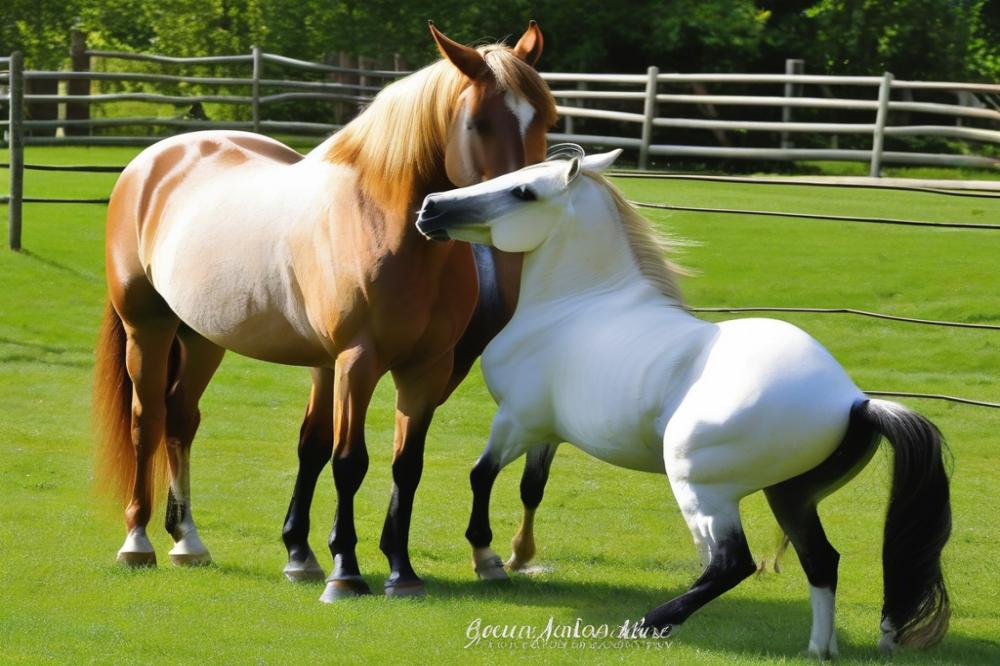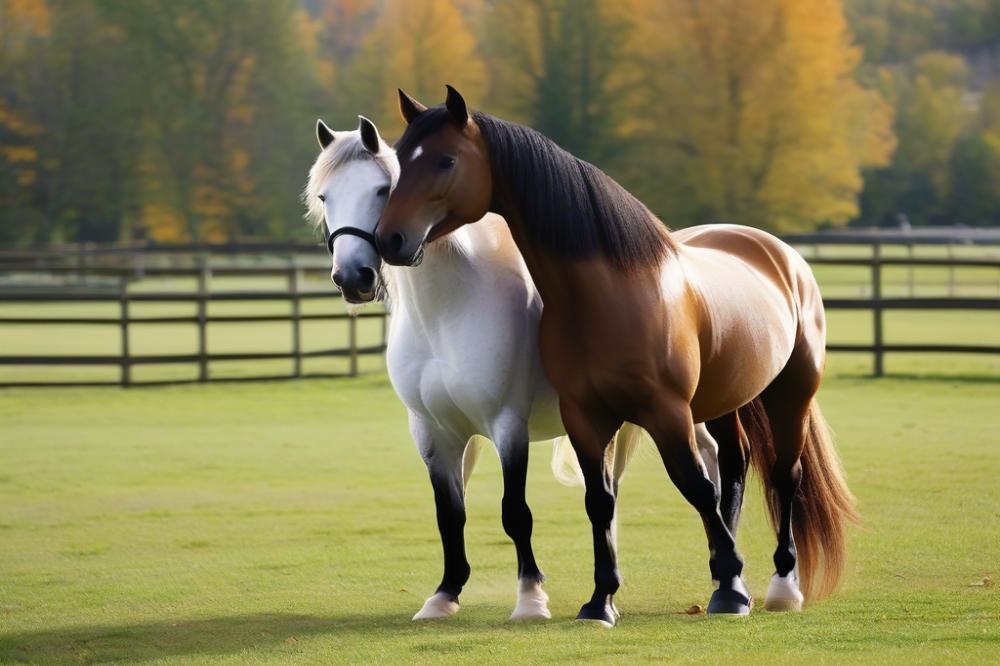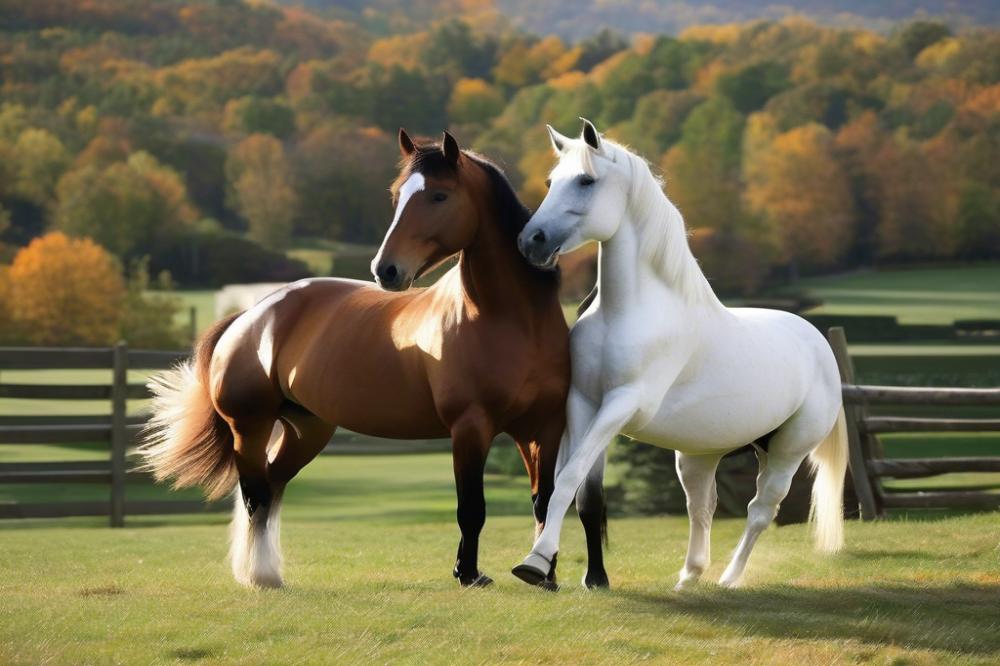Understanding the Bond Between Humans and Horses
Horses have been our loyal companions for thousands of years. From their roles in battle to their place in leisurely rides across green pastures, these majestic creatures have woven themselves into the fabric of our lives. Observing their powerful muscles ripple as they run can evoke feelings of admiration, while spending quiet moments with them can bring pure joy. Yet, the question remains—do horses enjoy close contact, like hugging? This simple gesture can mean a lot, but understanding equine behavior is essential to interpret what our four-legged friends truly feel.
The Importance of Understanding Horse Behavior
When trying to connect with a horse, knowing its body language is just as vital as grasping horse psychology. Horses communicate in various ways, from the flick of their ears to the position of their tails. Each movement tells a story, reflecting their emotions and comfort levels. After all, a horse isn’t just a riding buddy; it has feelings that can mirror our own. A nervous flick of a tail might not mean they’ve had too much coffee, but it surely indicates they’re uncomfortable. Just like humans, they deserve to be understood.
Imagine walking into a stable filled with the earthy scent of hay and the occasional whinny. Your goal is to bond with a beautiful budyonny horse. You lean in to offer a hug, but if that horse turns away and pins its ears back, you might want to reconsider your approach. Knowing how to read that subtle body language can make a world of difference in horse care and handling. It’s not about forcing affection but rather about nurturing a friendship based on trust and respect.
Purpose of This Exploration
This article will dive into the fascinating world of horse emotions and the intricate relationships we build with them. By examining how horses respond to touch, we can uncover whether the act of hugging truly resonates with them. Along the way, we’ll touch on various aspects of horse handling, the differences between breeds like standardbred vs thoroughbred, and the essential needs of our equine partners. Not only will this help you gain insight, but it will also enhance the bond you share with horses.
In the end, it’s all about creating a relationship founded on understanding and love. For many, horses are more than just animals; they’re friends, confidants, and partners in adventure. So, let’s saddle up and explore the heartfelt connection we can forge with these incredible beasts.
Horses’ Social Behaviors

Explanation of Herd Dynamics
Horses are social animals that thrive in groups, called herds. They rely on each other for safety and companionship. Within a herd, each horse has a role. Some take on leadership, while others follow. This structure helps maintain order and harmony. Conflicts can arise, but they often settle quickly. A quick nip or a loud neigh can restore peace. Understanding herd dynamics is essential. It helps us grasp horse psychology and equine behavior.
How Horses Communicate Affection
When it comes to expressing feelings, horses have their own language. They might snuggle up to a trusted friend or softly nuzzle with their muzzle. Whinnying can indicate excitement or greeting, much like a warm hello. Stretching their necks towards another horse often shows desire to bond. You might observe them grooming each other, which works like a spa day for horses. This behavior builds trust and friendship. People often notice that their equine friends are quite affectionate when given proper horse care.
The Role of Physical Contact in Horse Interactions
Touch plays a significant role in horse handling and interactions. A gentle scratch behind the ears can feel heavenly to a horse. It’s a way to build connection and trust. Horses also engage in mutual grooming, which strengthens their social ties. This physical contact feels good and reassures them they’re part of a team. Just like humans, horses benefit from hugs—but it’s essential to approach them slowly. Safety is key, and respect is paramount. The comfort level with physical touch can vary among individual horses. Some may love being close, while others prefer their space. So, each interaction can be a learning experience.
The Biology of Horses and Touch

Sensory Perception in Horses
Horses are fascinating creatures. They rely on their senses to understand the world around them. The sense of touch is crucial for them, much like it is for us. Their skin is sensitive, especially around the muzzle, face, and neck. When you stroke a horse, they can feel your hand. This reaction is part of how they experience horse-human interaction. Imagine a friend giving you a high-five; that connection matters!
Horses also have a well-developed sense of smell. They often use it to gather information about their environment. A horse’s ability to detect scents helps them understand whether a situation is safe or not. They may sniff you before welcoming a nuzzle. This behavior offers insights into their feelings and comfort levels.
How Horses Respond to Physical Contact
When it comes to touch, horses respond in various ways. Some may lean into your hand or nudge you for more affection. Others might stand still and enjoy the moment. Respecting their boundaries is crucial. Overdoing it with hugs could make them uncomfortable. Remember, it’s not all about cuddles!
When you first approach a horse, consider their body language. Ears pinned back or a swishing tail can indicate annoyance. On the flip side, soft eyes and relaxed muscles show they’re calm. This is key to understanding equine behavior. It’s like having a chat without saying a word.
Differences in Response to Touch Compared to Other Animals
Compared to most dogs or cats, horses have a different reaction to touch. Canines often love cuddling with their humans, while horses can be a bit more reserved. Horses generally enjoy gentle strokes; however, they may not always seek out physical closeness. This difference doesn’t mean that horses don’t feel emotions. They experience a range of feelings, just like any other pet.
Animal emotions are complex, especially in the equine world. Horses form strong bonds but express affection differently. A horse might follow you around or nuzzle you gently. This is their way of showing they care, and it’s quite heartwarming. In a way, they have their own love language.
Navigating horse handling requires an understanding of these nuances. You’ll find that every horse is like a unique puzzle. Getting to know your horse’s preferences can make care easier. A gentle pat on the neck may be all they need to feel valued. The goal is to build a trusting relationship, one touch at a time.
Do Horses Enjoy Being Hugged?

Evidence from Studies and Observations
Many people wonder if horses enjoy a good hug. Research about horse-human interaction offers some clues. Observations show that some equines don’t mind a little affection. They often lean in when their human offers a warm embrace. Other studies suggest that horses express their feelings through body language. When a horse nuzzles or moves closer, it could mean they’re comfortable. On the flip side, a horse that turns away or flattens its ears might be saying, “Not now, please!” So, it seems the answer isn’t black and white.
Individual Preferences of Horses
Every horse has its own personality. Just like people, some are more cuddly than others. A playful pony might crave attention, while a serious mare could prefer space. It’s important to recognize these individual differences. Getting to know your horse fosters a better relationship. Pay attention to how each animal responds during horse care sessions. A relaxed horse is usually in a good mood. On the other hand, a horse that is fidgety or uneasy might need more time to feel safe.
Signs of Comfort or Discomfort During Hugging
Noticing body language is key to understanding animal emotions. When a horse stands tall with relaxed ears, that often shows they’re happy. If they nuzzle you gently, it’s a good sign they appreciate your closeness. However, if a horse pins its ears back or shifts its weight, something might be off. You can also watch for tail movement; a slapping tail can mean a horse is annoyed or overstimulated. Trust your instincts too. If you feel like a horse doesn’t want to engage, it’s best to back off. Respecting their boundaries is essential in horse handling.
Understanding these factors enhances the bond between humans and their equine partners. Remember, each horse operates on its own wavelength. Embrace the journey of learning about your unique friend!
Alternatives to Hugging Horses
Many people love to show affection to their horses. However, hugging isn’t always top of the list for these magnificent creatures. Instead, there are plenty of other ways to bond and share positive moments. Understanding how to express care can deepen the relationship between a horse and a human.
Other Forms of Affection and Bonding
A gentle scratch on the withers often does wonders. Horses have favorite spots where they enjoy being petted. Pay attention to their reactions. A soft nuzzle or a calming voice can go a long way. Horses thrive on consistent interactions. This builds trust and helps with horse handling overall. Sharing treats, like carrots or apples, is also a great way to show love. Always check if the horse has any dietary restrictions first!
Activities That Enhance Human-Horse Relationships
Engaging in activities together can create memorable experiences. Have you tried ground work? It involves leading the horse through various exercises. This not only teaches discipline but also reinforces a solid bond between you two. Riding can also be an excellent way to connect. The trust you develop while in the saddle is special. And don’t forget about grooming! Regularly brushing your horse provides a calming experience for both of you. It can be soothing and lets you check for any injuries or skin issues too.
Understanding Horse Body Language
Equine behavior tells us a lot about horse emotions. When a horse flattens its ears, that usually means it’s feeling defensive. On the other hand, if it nuzzles you or nudges gently, it’s a sign of affection. Observing these signals is crucial for horse care. Body language can reveal feelings and ease communication. Make sure to approach your horse calmly, and watch for their reactions. They may just want a quiet moment or a playful interaction. Learning this is part of understanding horse psychology. What works with one horse may not work with another.
Keep in mind, building a strong relationship takes time. Each horse has its own personality. Be patient and let them guide you to the best ways to connect. After all, a happy horse makes for a satisfying horse-human interaction!
Safety Considerations When Hugging Horses
Best Practices for Approaching a Horse
When meeting a horse, keep things calm and relaxed. Never rush in like you’re greeting an old friend—approach slowly. Always try to make your presence known. You can use soft words or gentle movements. This helps avoid startling the animal. Remember, a horse’s first reaction can set the tone.
Gently extend a hand, letting the horse sniff you first. This is like a handshake in the horse world. Once he seems comfortable, you can move closer. Horses are often curious creatures, but they can also be cautious. Read the body language. If he flattens his ears or turns away, it’s best to wait.
Recognizing a Horse’s Personal Space
Every horse has a comfort zone, a bubble if you will. If you invade this space without permission, you might get a quick kick or a warning snort. Respect this area! Leaning in too close can make your new friend feel threatened. Just like humans, horses need their own space sometimes.
Stand to the side rather than right in front. This makes you less intimidating. Horses have a hard time seeing directly in front of their eyes; it’s a bit like having a blind spot. Stay in that safe zone, and let him come to you. Your goal is to create a sense of security. Horse-human interaction is all about trust.
Ensuring the Safety of Both Horse and Human
Safety is key for both you and the horse. Interactions should be friendly but cautious. Avoid hugging a horse unless you know him well. Even the gentlest giant can feel trapped if they aren’t used to close contact. It’s like trying to hug a grumpy uncle at Thanksgiving—sometimes it’s best to keep a comfortable distance!
If you decide to attempt a hug, make it short and light. A little affectionate pat on the neck can say a lot! Gauge his reaction. Horses express animal emotions openly, so watch for signs of approval or discomfort. Some horses might lean into your touch; others may back away.
Always have an escape plan. Should a situation become tense or uncomfortable, give your horse room to express himself. That way, both you and the horse feel safe. Remember, while you might be ready to bond, the horse might not be on the same page yet. Patience is essential in equine behavior and horse care.
Research and Insights from Equine Experts
Summary of Expert Opinions on Hugging
Many equine experts have weighed in on the idea of hugging horses. Some trainers believe that while a gentle embrace can create a bond, it’s crucial to consider the horse’s comfort. Not every horse enjoys the same level of closeness in horse-human interaction. Trainers often advise reading body language. Horses might lean into a person or nuzzle them if they feel safe. However, too much pressure can lead to stress. Understanding what a horse likes is important.
Current Studies on Equine Emotional Responses
Research in horse psychology offers fascinating insights into how these animals feel. Recent studies show that horses can experience a range of emotions, similar to dogs and cats. They might show happiness by flicking their ears or relaxing their muscles. Feeling anxious could lead to tensed bodies or pinned ears. Scientists have discovered that horses have distinct ways of communicating their feelings, making it easier for us to listen if we pay attention. Interpretations of their emotions can guide horse care and handling, especially when considering physical closeness.
Insights from Trainers and Equine Behaviorists
Trainers often share stories about their experiences with horses. One common theme is that trust is essential. A horse may allow a human to get close and enjoy contact, but this will happen only if they feel secure. Experts encourage leading with kindness and patience to help build that confidence. Some trainers even note that a gentle pat can be more comforting than a big hug. It helps to maintain a sense of personal space while still expressing affection. Many professionals agree that understanding equine behavior is key to a successful relationship with these magnificent creatures.
Wrapping It Up: Understanding Horses and Our Bond with Them
To sum it all up, it’s clear that horses have their own preferences when it comes to affection. They aren’t like cuddly puppies that seek out hugs at every opportunity. Instead, they communicate their feelings through body language and presence. Just like people, some horses may enjoy light touches and gentle rubs, while others might not appreciate close physical contact. This doesn’t mean they don’t bond with us; they just express it differently.
When we think about the relationship between humans and these majestic animals, we realize it is built on trust and understanding. Take time to learn what a horse likes or dislikes. Observing their reactions teaches us so much! For example, a horse that leans into you when you pet it is likely feeling comfortable, whereas one that steps away might need its space. Just like in any friendship, giving and respecting boundaries is key.
Furthermore, the world of horses isn’t just about riding or competing. It can feel like a grand adventure; learning about their behavior can be like diving into ‘horse in Greek mythology’—full of stories and depth. Every horse has a tale to tell, and by fostering a deeper comprehension of their habits and needs, we can deepen our connection. Think of the difference between a dressage saddle vs jumping saddle; each has its purpose, just like each horse has its unique personality.
Ultimately, it would help if you always aimed to treat horses with the utmost kindness and respect. They might not be like humans who crave warm embraces, but they can still feel loved and appreciated. As you interact with these beautiful creatures, keep building that bond based on intuition and care. Remember, every effort counts, whether a gentle pat or simply enjoying their company. Let’s both strive for a connection that leaves our horses feeling safe and understood. After all, in the world of equines, it’s the heart that truly counts.



